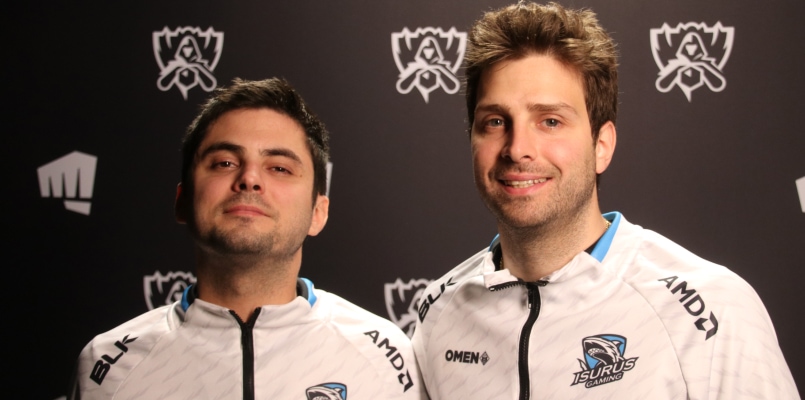Mentioned in this article
League/Tournament Brands:
On the third day of the League of Legends World Championships play-in, the Latin American team Isurus Gaming emerged victorious after a 60-minute, knock-down, drag-out fight with Japan’s DetonatioN FocusMe. A typical game can last half that long, but with the consequence of being the first team to drop from the tournament, both squads pushed themselves to the limit.
Isurus Gaming’s founder and CEO, Facundo Calabró, spoke with The Esports Observer minutes after the match. “I think it was the most beautiful and not beautiful, at the same time, game I’ve ever seen from my team in my life.”
“This game was the whole process that we’ve been dealing with all these years,” added the team’s COO, Juan Cyterzpiler. At the time of publication, Isurus is in the knockout stage against Hong Kong Attitude. If victorious, the Argentina-based team would be the first-ever from Latin America to make it to the main event.
“The exposure is beneficial for us,” said Calabró. “The world can see us, and we can show the potential market that Latin America has, and the potential players that the market has.” While a global viewership would certainly benefit the multi-team esports company, Calabró adds that a strong Latin American squad would reignite local interest in the videogame itself.

“More people coming to play for Riot Games means much more investment they can do in our region,” he explained. “We need a lot more investment in our region, and the only way we have is winning.”
The changes in the Liga Latinoamérica (LLA) have been slow, but meaningful. This was the first year in which the previously divided region consolidated into one unified competition, and was broadcasted on television as part of a title sponsorship deal with Movistar. In 2020, the league will move from its minuscule studio in Chile to a venue in Mexico, and will have a live audience for the first time.
“Our companies, our sponsors, everyone who wants to invest in esports wants the players on the teams to be part of the people, the fans,” said Calabró, who cited both Mexico’s population of 126M, and its close proximity to the United States. Isurus Gaming has already signed a deal with Telcel, one of the largest telecommunication companies in the country.
“We were the first team in Latin America to make a commercial action with Renault, and we’re really glad to do that,” said Juan, who noted that teams in Latin America often make twice the effort than their North American or European counterparts to be noticed on the world stage.
“We’re trying to show Latin America that esports is possible,” he said. “If we go to the group stage, that would change the game.”
The League of Legends World Championship is an annual competition in which the top teams from all 13 global regions for the game compete for the Summoner’s Cup. This year’s event begins in Berlin for the play-in and group stages, moves to Madrid for the semi-finals, and will conclude with the finals in Paris.
The play-in stage features the third seed qualifying teams from Europe, North America, South Korea and the LMS (Hong Kong/Macau/Taiwan), the second seed team from Vietnam, as well as regional qualifiers from CIS, Latin America, Turkey, Brazil, Japan, Oceania, and Southeast Asia. Only four of these teams will be able to advance to the group stage.

